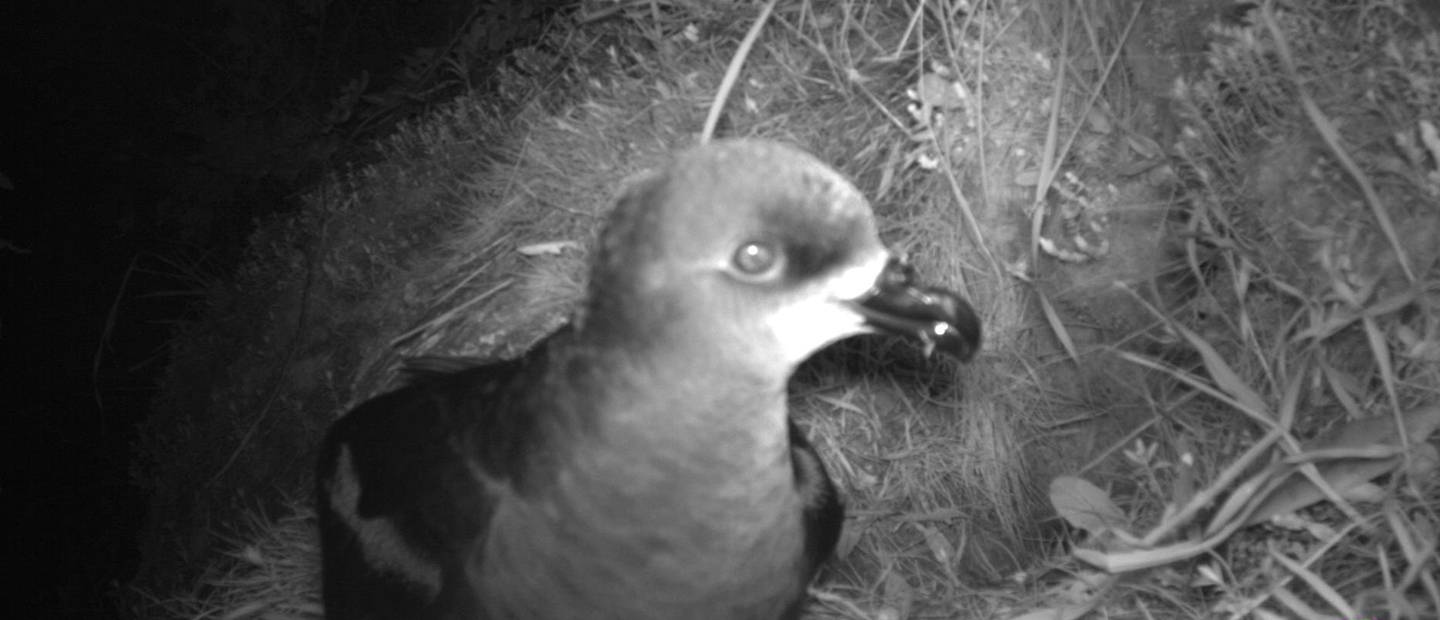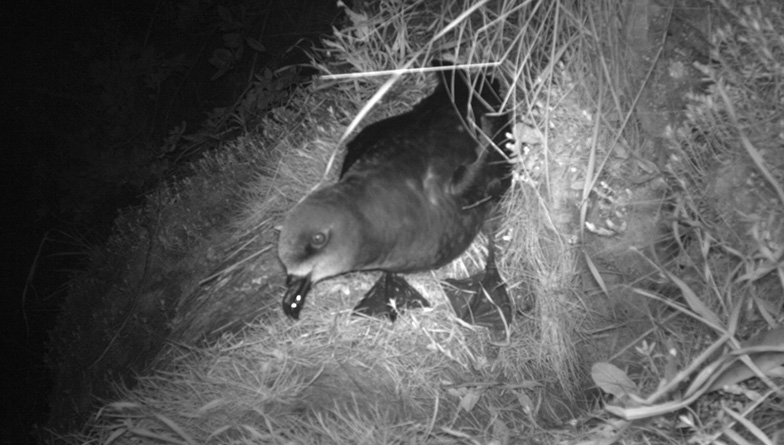As she treks through Rotoroa Island’s forest, the intense, musky, ocean-seabird smell of grey-faced petrels, is like sweet perfume to Auckland Zoo’s field conservation projects coordinator Claudine Gibson.
“I knew we were off to an excellent start, and sure enough soon after, we heard two adult petrels calling from deep inside their burrows.
“It was awesome to hear their high-pitched whistles, and we’re really optimistic that these two birds are currently sitting on eggs, and there may be more,” adds the self-proclaimed seabird lover.
Never heard the call of a grey-faced petrel? Check it out here:
http://nzbirdsonline.org.nz/species/grey-faced-petrel#bird-sounds
Back in early April, when the remnants of Cyclone Debbie hit New Zealand, Rotoroa lost 15 grey-faced petrel burrows to landslips.
Claudine says despite this setback, there’s an incredible amount of petrel activity happening at all of the burrows remaining on the island, as our 15 trail cameras have helped reveal.



